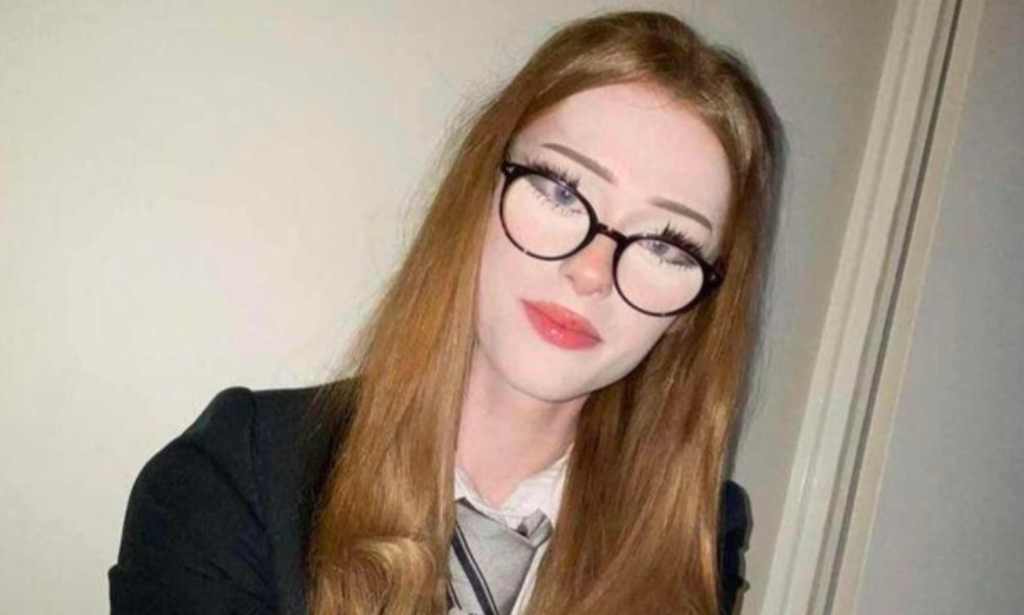Brianna Ghey’s killer not seen as a ‘serious risk’ by safeguarding services, review finds
Safeguarding services working with Brianna Ghey’s killer Scarlett Jenkinson did not believe she was a risk to others and had “no reason to be concerned” about their friendship, a review into local safeguarding services has found.
In December, Jenkinson and accomplice Eddie Ratcliffe, both 16 at the time, were found guilty of murder after stabbing trans teenager Ghey 28 times in a park in Cheshire in February 2023.
The pair’s identities were revealed to the public after the anonymity order which protects under-18s in legal cases was lifted because of the serious nature of their crimes. Jenkinson was sentenced to life in prison with a minimum of 22 years, and Ratcliffe to life with a minimum of 20 years.
The judge in the case noted both took part in a “brutal, planned murder” that was “sadistic in nature” and motivated by “hostility towards Brianna because of her transgender identity”.
An independent safeguarding review carried out by Warrington Safeguarding Partnership and published on Monday (12 August) examined interactions Jenkinson had with support agencies prior to the murder.
This review did not cover Ratcliffe because he lived in nearby Wigan.

The review detailed that Jenkinson had meetings with a healthcare practitioner and various GP about her mental health and emotional wellbeing, as well as referrals to child and adolescent mental health services about her mental health and emotional wellbeing, most of which concerned “managing anxiety, low mood and assessing level of risk from this and self-harming (cutting arms and sometimes legs)”.
It said she had moved from Culcheth High School to Birchwood Community High School on a trial basis in November 2022 to avoid a permanent exclusion after spiking an unsuspecting fellow teenage pupil by giving them a cannabis sweet which made them ill.
During February 2023, Jenkinson described hearing voices saying “unkind things and [put] her down
rather than encouraging her to harm herself or others”.
It was noted that a safeguarding file that contained the “detailed information about the previous non-proven suspicions regarding substance misuse, and the self-harm” was not shared between the schools and while that information would not have “affected the decision to seek/offer a managed move”, it “could have been considered to ensure the support plan gave Scarlett the best chance of making success of the trial”.
While Jenkinson “had some vulnerabilities” before the murder of Ghey, she “did not stand out from other children”, the review went on to say.
“Practitioners who knew her before then were not aware of anything that would have made them think that she was a serious risk to others. They did not know of Scarlett’s fascination with violent acts. They saw no reason to be concerned about any contact with Brianna that they knew about.”
Evidence from court during the course of the trial revealed Jenkinson and Ratcliffe shared a harrowing fascination with violence, torture and serial killers, planning their “dark fantasies” together.
Ratcliffe described Jenkinson as “not a normal person” in a police interview which was played to Manchester Crown Court, adding: “[She] likes to joke about dead babies and stuff” as well as call herself a satanist and make “jokes about stabbing… watching torture videos”.
Jenkinson confirmed her accomplice’s accusations on day 10 of the trial, saying she was interested in “dark materials” she found on the dark web, such as videos depicting murder, torture and serial killers, and had an interest in serial killers, their personalities and the “different ways they would carry things out”.
The review highlighted Jenkinson was known to have “some difficulties with peer relationships” and cited the incident of the cannabis sweet, stating it was at “best unkind, or worse a deliberate attempt to give someone what could be a frightening experience”.
However, “this was not behaviour at a level which could reasonably be expected to make practitioners suspect that Scarlett would go on to commit murder”.

The review concluded there were examples of good practice in the case but there was also “some learning for the future”, adding: “There were two occasions when parents should have been encouraged to consent to multi-agency information sharing and multi-agency working: the temporary exclusion from school, and when permanent exclusion was being considered.
“On the basis of the information known to practitioners individually or collectively, a “managed move” between schools as an alternative to permanent exclusion was appropriate for Scarlett. There was also no reason known to practitioners to prevent Scarlett from mixing freely with another other pupils in school two.”
The review set out several recommendations for singular and multi-agency learning.
In a statement released alongside the review, Warrington Safeguarding Partnership said: “Today, we continue to think about Brianna.
“This report examines closely the actions of Scarlett and identifies important learning opportunities for all agencies. Compiling this report for publication has been a thorough process, led by an expert independent reviewer.
“While the report acknowledges that nobody could have foreseen the actions of Scarlett, the learning points in the report must, and will be, shared and embraced locally by all partners in Warrington.
“We know that the report will provide little comfort to those who have been affected by this tragic case, but we equally hope that organisations across the country are able to draw on the report to identify any improvements they can make.
“The safeguarding partnership will continue to work alongside its partners in Warrington to ensure that support is available to those who need it.”
Esther Ghey, Brianna’s mother, said the review “clearly found that nobody could have predicted the events that took place”, adding that her family is “now focused on looking forward to creating a safer, more empathetic and resilient society in Brianna’s legacy”.
How did this story make you feel?

